- Home
- James Rollins
The Doomsday Key and The Last Oracle with Bonus Excerpts Page 4
The Doomsday Key and The Last Oracle with Bonus Excerpts Read online
Page 4
“What?” Monk asked.
Gray nodded to the map overlay. “The Santa Croce area also houses some of the oldest sections of the University of Venice. Two years ago, she murdered a museum curator in that city, one connected to the same university. Killed him in cold blood. She said it was necessary to protect the man’s family. A wife and daughter.”
Painter confirmed the same. “The child and mother do live in that area. We’ve got people on the ground trying to pinpoint her location. But the tracker is passive. We can’t narrow her location to less than two square miles. In case she shows up, we do have the curator’s family under surveillance. With so many eyes looking for her, she must be maintaining a low profile, possibly using a disguise.”
Gray remembered the strain in Seichan’s face when she had tried to justify the cold-blooded murder of the museum curator. Possibly guilt, rather than the Guild, had drawn her back to Venice. But to what end? And what if he was wrong? What if this was all an artful bit of trickery? Seichan was nothing if not brilliant, an excellent strategist.
He studied the screen.
Something felt wrong about all this.
“Why are you showing me this now?” Gray asked. Sigma had been tracking Seichan for over a year, so why the sudden urgency to call him back to central command?
“Word has filtered down from the NSA, passing through the new head of DARPA and down to us. With no real intelligence gained from Seichan’s freedom this past year, the powers-that-be have lost patience with the operation and have ordered her immediate capture. She’s to be brought in to a black ops interrogation center in Bosnia.”
“But that’s insane. She’ll never talk. Our best chance of discovering anything concrete about the Guild is through this operation.”
“I agree. Unfortunately, we’re the only ones who hold that position. Now if Sean was still heading DARPA …”
Painter’s words trailed off into a place of pain. Dr. Sean McKnight had been the founder of Sigma and the head of DARPA at the time. Last year he’d been killed during an assault on Sigma Command. The new head of DARPA, General Gregory Metcalf, was still fresh to his position, still dealing with the political fallout following the assault. He and Painter had been butting heads ever since. Gray suspected that only the president’s support of Painter Crowe kept the director from being fired. But even that support had its limits.
“Metcalf refuses to ruffle any feathers among the various intelligence communities and has sided with the NSA on this matter.”
“So they’re going to bring her in.”
Painter shrugged. “If they can. But they have no idea who they’re dealing with.”
“I’m between assignments. I could head out there. Offer my help.”
“Help to do what? Help find her or help her get away?”
Gray remained silent, his feelings mixed. He finally spoke firmly. “I’ll do whatever is asked of me,” he said, staring pointedly at Painter.
The director shook his head. “If Seichan sees you or even suspects you’re in Venice, then she’ll know she’s being tracked. We’ll lose all advantage.”
Gray frowned, knowing the director was right.
The phone rang, and Painter picked up the receiver. Gray was glad for the momentary distraction as he fought to settle his thoughts.
“What is it, Brant?” Painter said. As the director listened to his office assistant’s reply, the crease between his eyes deepened. “Patch the call through.”
After a moment, Painter held the phone receiver toward Gray. “It’s Lieutenant Rachel Verona, calling from Rome.”
Gray could not hide his surprise as he accepted the phone and placed it to his ear. He turned slightly away from the other two men.
“Rachel?”
He immediately heard the tears in her voice. There was no sobbing, but her normally crisp fluency was fractured into pieces, catching between words. “Gray … I need your help.”
“Anything. What is it?”
He had not spoken to her in months. For over a year, he’d been romantically involved with the raven-haired lieutenant, even talking marriage, but in the end it had not worked out. She was too tied down to her job with the Italian carabinieri. Likewise, Gray had deep roots both professionally and personally here in the States. The distance proved too great.
“It’s my uncle Vigor,” she said. Her words rushed out as if hurrying ahead of a flood of tears. “Last night. There was an explosion at Saint Peter’s. He’s in a coma.”
“My God, what happened?”
Rachel hurried on. “Another priest was killed, one of his former students. They suspect terrorists. But I don’t … they won’t let me … I didn’t know who else to call.”
“It’s okay. I can be out there on the next flight.” Gray glanced back to Painter. His boss nodded, needing no explanation.
Monsignor Vigor Verona had helped Sigma in two earlier operations. His knowledge of archaeology and ancient history had proved vital, along with his intimate connections within the Catholic Church. They owed the monsignor a huge debt.
“Thank you, Gray.” She already sounded calmer. “I’ll forward the investigative file. But there are some details kept out of the report. I’ll fill you in once you’re here.”
As she spoke, Gray’s attention settled on the computer monitor, specifically on the glowing red tracker in the center of Venice. The photo of Seichan stared back at him from the corner of the screen, her expression cold and angry. The assassin also had a past history with Rachel and her uncle.
And now she was back in Italy.
A sense of foreboding jangled through him.
Something was wrong with this whole situation. He sensed a storm brewing out there, but he didn’t know which way the winds were blowing. He knew only one thing for certain.
“I’ll be there as soon as I can,” he promised Rachel.
3
October 10, 7:28 P.M.
Rome, Italy
As Lieutenant Rachel Verona stepped out of the hospital and into the dusky twilight of central Rome, she took a deep breath of the crisp autumn air, her anxiety easing a little. The sting of disinfectant had barely masked the odor of bodies languishing in beds. Hospitals always smelled like dread.
For the first time in years, she wished for a cigarette, anything to smoke out the sense of apprehension that had built inside her with every passing hour as her uncle remained in a coma. He was hooked to IV lines; electrodes led to machines that monitored his vital signs; a respirator moved his chest up and down. He looked a decade older, his eyes blackened and bruised, his head shaved and wrapped. The doctors had explained: subdural hemorrhage along with a small skull fracture. They were closely monitoring his intracranial pressure. MRI showed no brain damage, but he remained unconscious, which worried the doctors. According to the medical and police report, Vigor had arrived at the hospital in a semidelirious state. Before he slipped into a coma, he kept repeating one word in a frantic manner.
Morte.
Death.
But what did that mean? Had Vigor known what had happened to the other priest? Or was it just delirium?
No one could ask him. He remained unresponsive.
Still, it bothered her. She had held his hand most of the day, squeezing it occasionally, praying for some sign of recovery. But his fingers remained lax, his skin cold, as if something vital had escaped his body, leaving only this shell behind.
What especially tortured Rachel was that she couldn’t help her uncle. Vigor had practically raised her, and he was the only real family she had left. So she had sat with him all day, only leaving her vigil to make the call to the United States.
Gray would be here by morning.
It was the only bit of good news in the past twenty-four hours. Though she couldn’t help Vigor medically, she could use her resources to discover the truth behind the attack.
At the moment, the investigation into the explosion at Saint Peter’s had turned into a multiagency quagm
ire, involving everyone from Italian intelligence services to Interpol and Europol. Everyone seemed to have come to the consensus that it was a terrorist attack. This assessment rose mainly from the postmortem mutilation of the dead priest’s body. A strange mark had been burned into his forehead.
Someone had definitely left a message. But what was that message and who had sent it? As of yet, no group had claimed responsibility.
Rachel knew the quickest way to discover the truth was to instigate her own investigation, something with a narrower focus, more surgical than the current chaos generated by the various agencies.
So she had called Gray. Though such a plea for help was awkward on a personal level, she recognized she would need Sigma’s global resources if she hoped to discover the truth. She also recognized that she couldn’t do this alone. She needed someone she could fully trust. She needed Gray.
But was the call to him more than just professional?
She pushed that last thought aside as she crossed the hospital parking garage. Reaching her small blue Mini Cooper, she climbed inside and set off across Rome. She left the top down, and the freshening breeze helped clear her head, until a trundling tour bus swooped ahead of her, belching fumes.
Rachel swung off the main thoroughfare and wound through smaller streets framed by shops, cafés, and restaurants. She had been planning to head over to her apartment, to rest and collect her thoughts before tomorrow, but instead her path wound on its own toward the Tiber River. After a few turns, the shining dome of Saint Peter’s rose into view on the far bank.
She continued to let traffic funnel her toward her goal. All of Vatican City had been closed to the public since the explosion. Even the pope had been shifted for security reasons to his summer residence at Castel Gandolfo. But all that failed to halt the flow of tourists and onlookers. If anything, curiosity had thickened the throngs.
Due to the congestion, it took Rachel an extra half hour to find a parking spot. By the time she reached the police barricade that cordoned off the famous square, full night had set in. Saint Peter’s Square was usually crowded with the pious and the raucous, but at the moment, it was nearly deserted. Only a few uniformed men patrolled among the columns and in the open piazza. One stood post at the foot of the Egyptian obelisk that rose in the center of the square. They all bore rifles on their shoulders.
Rachel showed her credentials at the barricade.
The policeman frowned. He was middle-aged, thick around the belly, and stood slightly bowlegged. The city police and the militarized carabinieri were not always on the best of terms.
“Why are you here?” he asked brusquely. “Why does this attack concern the Carabinieri Tutela del Patrimonio Culturale?”
It was a fair question. Her agency oversaw the theft of art and the black market trade in antiquities. It had nothing to do with domestic terrorism. She had not been authorized to be here. In fact, due to her connection with one of the victims, she had been specifically warned to keep her distance.
But she had to see the crime scene for herself.
Rachel cleared her throat and pointed forward. “I’m here to catalog and document the site of the explosion, to verify that no art was stolen following the bombing.”
“So, secretarial work.” His voice rippled with disdain. He added under his breath, “No wonder they sent a woman.”
Rachel refused to rise to the bait. She retrieved her credentials. “If you’re done, it’s late and I have much work to do.”
He shrugged and stepped aside, but just barely. She had to brush against him to pass. He leaned into her, pressing, trying to intimidate her with his bulk and size. Rachel knew this game. In an organization that was mostly a male fraternity, she was treated as either a threat or something to be conquered.
Anger flared, momentarily burning through her anxiety and worry. She pushed past the brute, but not before making sure her heel found the man’s instep. She ground down hard as she stepped past him.
He barked in surprise and hopped back.
“Scusi,” she apologized coldly and continued into the square without looking back.
“Zoccola!” he swore at her.
She ignored him as she crossed the empty piazza. To either side, the encircling arms of Bernini’s colonnades embraced her. She found her pace growing quicker as she passed the obelisk and fountains and continued toward the main doors to the basilica. Overhead, the breadth of Michelangelo’s dome glowed against the night sky.
Passing between the giant statues of Saint Peter and Saint Paul that stood guard before the basilica, she glanced at the inscription below the sword-bearing apostle Paul. In Hebrew, it read, “I can do all things in Him who strengthens me.” She couldn’t read Hebrew, but it had been her uncle Vigor who had taught her the words as a young girl. She took strength from both that message and the memory of her uncle.
With renewed determination, she climbed the steps to the entrance to Saint Peter’s. She found the doors unlocked. Crossing the church portico, she passed into the cavernous nave of the basilica. It stretched almost two hundred meters ahead of her. The church was dark except for a scatter of flickering votive candles, and at the far end of the nave the papal altar shone with the glow of portable sodium lamps. Even from here, Rachel made out the crisscross of crime tape.
The explosion took place in the apse, the area behind the main altar. She headed down the center aisle, ignoring the wealth of art, architecture, and history all around her. Her attention was focused on her goal.
Reaching the main altar, she stepped to the edge of the crime scene. At this hour, the area was deserted. Over the past two days, the investigators and experts had gone over the site with their evidence bags, brushes, swabs, tubes, and vials of chemicals. It was already known that the explosive charge was a dense form of heptanitrocubane, a new class of powerful energetics.
A shiver passed through Rachel as she stared down at the scorched marble. It was the only sign left of the actual attack. Even the blood had been cleaned off. But the floor was still marked with tape, displaying splatter patterns and estimating force trajectories of the blast. On the far side of the apse, a chalk outline marked where Father Marco Giovanni’s body had come to rest. He was found at the foot of the Altar of the Chair of Saint Peter, beneath the alabaster window showing the dove of the Holy Spirit.
Rachel had read the report on the young priest. He’d been a student of her uncle, a fellow Vatican archaeologist. According to the file, he’d spent the past decade in Ireland, researching the roots of Celtic Christianity, studying the early fusion of pagan rituals with the Catholic faith. He concentrated specifically on the mythos surrounding the Black Madonna, a figure often epitomized as the fusion of the pagan Earth Mother with the Virgin Mary.
Why would such an archaeologist be targeted? Or was it random? Had her uncle and his student just been at the wrong place at the wrong time? None of it made sense.
Rachel swallowed and turned. They’d found her uncle crumpled by the papal altar, blown by the blast wave, barely conscious.
Not wanting to contaminate the crime scene, Rachel circled around the outside of the taped-off area. She climbed the two steps to the left side of the apse. There was little room. She edged along the monument to Pope Paul III, with its statues of the virtues, Justice and Prudence, done in the likeness of the deceased pope’s sister and mother.
Her feet slowed.
What am I doing here?
Rachel suddenly grew too conscious of the tomblike quiet of the basilica, of the weight of ages and death, of the stacks of tombs around and below her. It didn’t help that across the apse, on the far side of the crime scene, stood the sepulcher of Pope Urban VIII. A bronze statue of the pope sat atop the monument, his hand raised in blessing. But below his feet rested his tomb, and rising from the top of the tomb was a bronze skeleton. An upraised bony hand was frozen as it wrote the name of the deceased pope on an open scroll. Rachel shivered at the sight.
She was not normal
ly so superstitious, but with Uncle Vigor so near death himself … What if she lost him?
She wanted to turn away, but she found her gaze lingering on the macabre statue, the symbol of death. Then she remembered. A cold wash swept through her, raising goose bumps over her arms.
Death.
She mumbled aloud the one word Vigor had kept repeating in his delirium. “Morte.”
She studied the bronze statue crouched atop the tomb. What if Vigor had been trying to tell them something, something he knew?
Rachel hurried back around the taped-off crime scene to the other side of the apse. She tipped up on her toes to peer more closely at the statue, but though she examined it carefully, she still almost missed it. The brown leather cord was the same color as the aged bronze.
She pulled on a pair of latex gloves and climbed up on the edge of the tomb to reach it. Grasping the cord, she freed a tiny satchel that was half-hidden behind the bony palm of the Grim Reaper. She dropped back down with her prize. Was her discovery of any significance? Or was this some bit of decoration left by a supplicant or tourist?
She noted a mark burned into the leather. It held no significance. It was a crude spiral, like some magic charm.
Disappointed, she turned the small leather pouch over. Her breath caught in her throat as she saw what was burned into the leather on this side.
A circle stamped with a cross.
She had seen this mark before.
In the forensics report on the body of Father Marco Giovanni.
The same symbol had been branded into the forehead of the dead priest. It had to be significant, but what did it mean?
Rachel knew one place to look for an answer. She teased open the pouch and dumped the contents into her palm. She frowned down at the single object. It looked like a small blackened twig. She lifted it closer—and immediately realized her error.
The twig had a fingernail.
Horrified, she almost dropped it.
What she held wasn’t a twig.
It was a human finger.

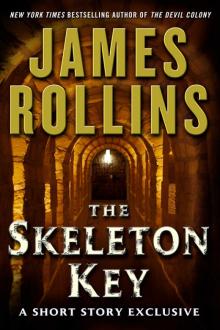 The Skeleton Key
The Skeleton Key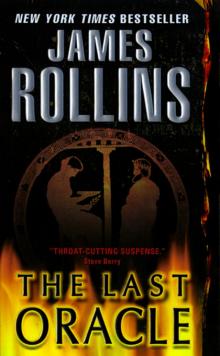 The Last Oracle
The Last Oracle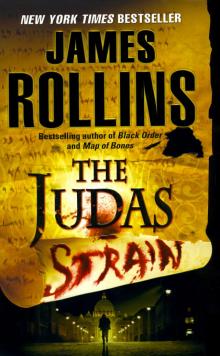 The Judas Strain
The Judas Strain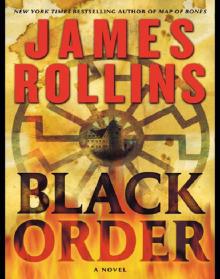 Black Order
Black Order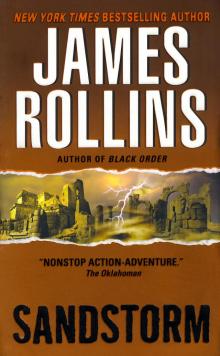 Sandstorm
Sandstorm Ghost Ship
Ghost Ship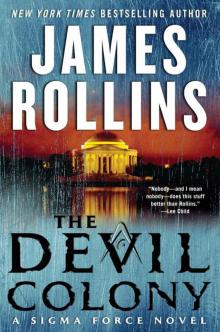 The Devil Colony
The Devil Colony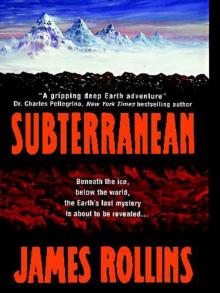 Subterranean
Subterranean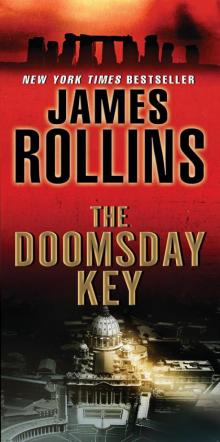 The Doomsday Key
The Doomsday Key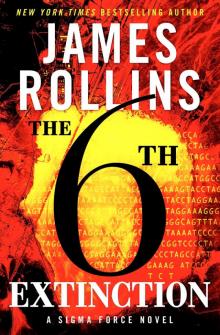 The 6th Extinction
The 6th Extinction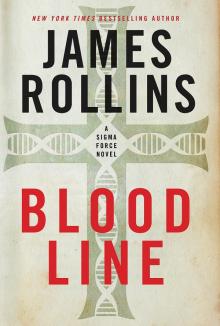 Bloodline
Bloodline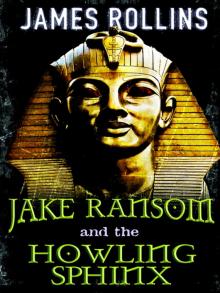 Jake Ransom and the Howling Sphinx
Jake Ransom and the Howling Sphinx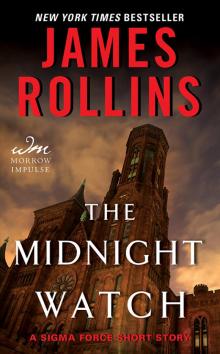 The Midnight Watch
The Midnight Watch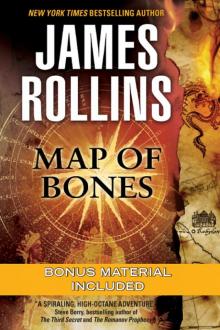 Map of Bones
Map of Bones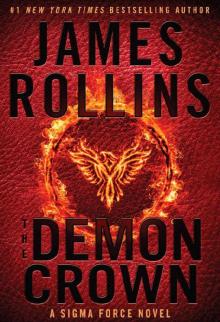 The Demon Crown
The Demon Crown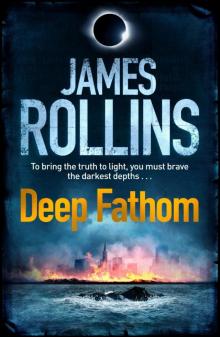 Deep Fathom
Deep Fathom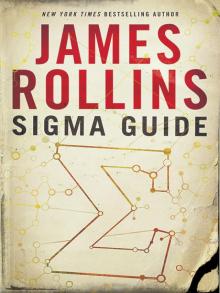 Sigma Guide
Sigma Guide Kowalski's in Love
Kowalski's in Love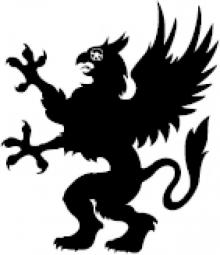 Jake Ransom and the Skull King's Shadow
Jake Ransom and the Skull King's Shadow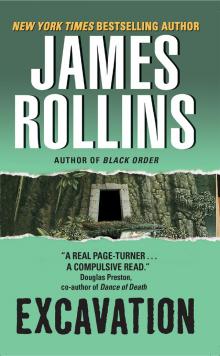 Excavation
Excavation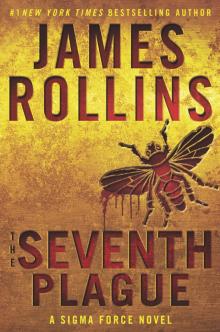 The Seventh Plague
The Seventh Plague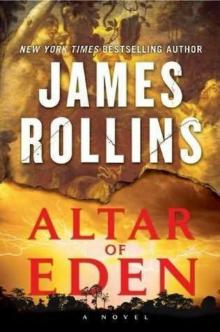 Altar of Eden
Altar of Eden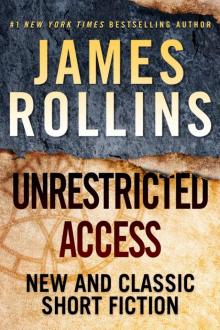 Unrestricted Access: New and Classic Short Fiction
Unrestricted Access: New and Classic Short Fiction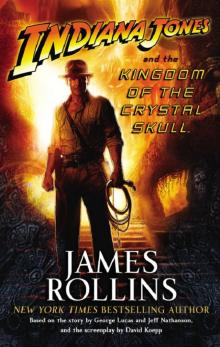 Indiana Jones and the Kingdom of the Crystal Skull
Indiana Jones and the Kingdom of the Crystal Skull Crucible
Crucible The Eye of God
The Eye of God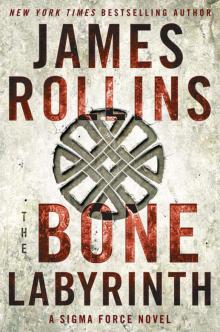 The Bone Labyrinth
The Bone Labyrinth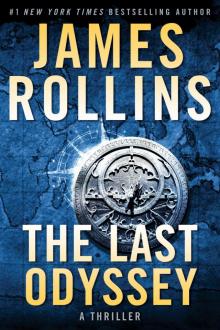 The Last Odyssey: A Thriller
The Last Odyssey: A Thriller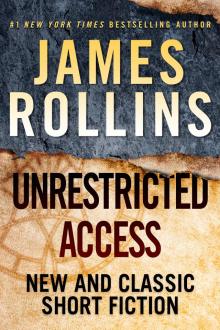 Unrestricted Access
Unrestricted Access Amazonia
Amazonia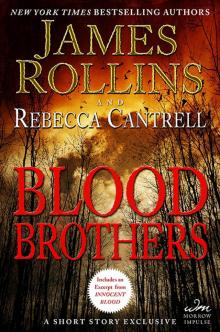 Blood Brothers: A Short Story Exclusive
Blood Brothers: A Short Story Exclusive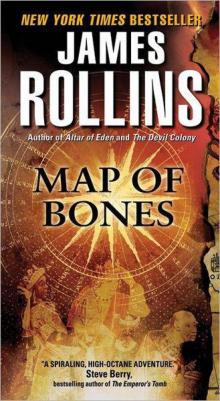 Map of Bones: A Sigma Force Novel
Map of Bones: A Sigma Force Novel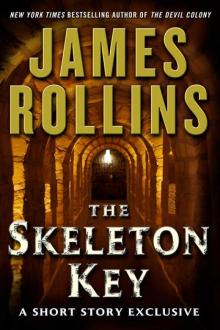 The Skeleton Key (sigma force)
The Skeleton Key (sigma force)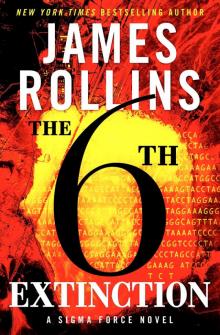 Sigma Force 10 - The Sixth Extinction
Sigma Force 10 - The Sixth Extinction Innocent Blood
Innocent Blood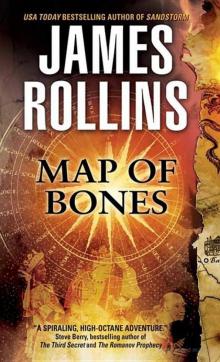 Map of Bones sf-2
Map of Bones sf-2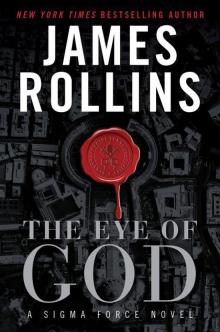 The Eye of God: A Sigma Force Novel
The Eye of God: A Sigma Force Novel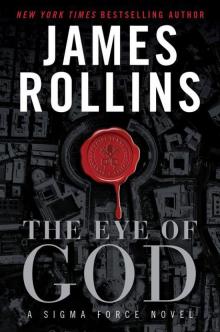 The Eye of God: A Sigma Force Novel sf-9
The Eye of God: A Sigma Force Novel sf-9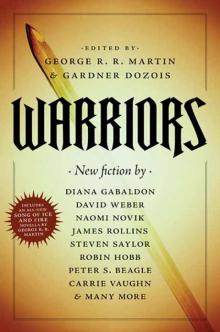 The Pit
The Pit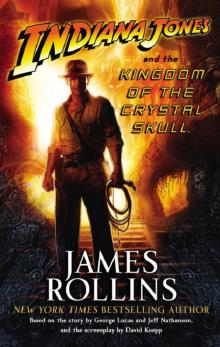 Indiana Jones and the The Kingdom Of The Crystal Skull
Indiana Jones and the The Kingdom Of The Crystal Skull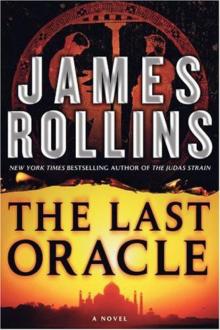 The Last Oracle (2008) sf-5
The Last Oracle (2008) sf-5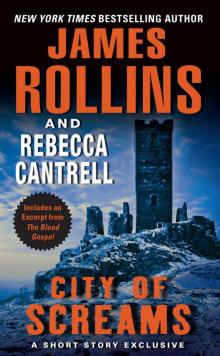 City of Screams
City of Screams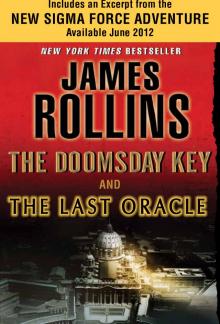 The Doomsday Key and The Last Oracle with Bonus Excerpts
The Doomsday Key and The Last Oracle with Bonus Excerpts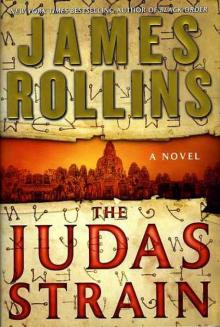 The Judas Strain sf-4
The Judas Strain sf-4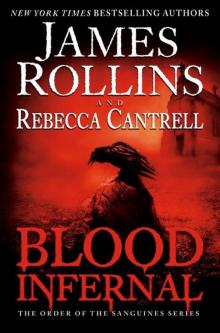 Blood Infernal
Blood Infernal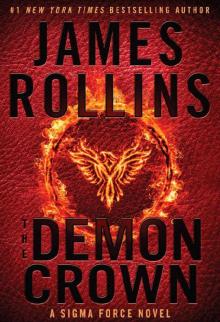 The Demon Crown: A Sigma Force Novel
The Demon Crown: A Sigma Force Novel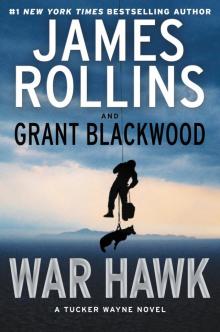 War Hawk: A Tucker Wayne Novel
War Hawk: A Tucker Wayne Novel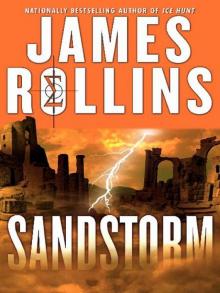 SANDSTORM sf-1
SANDSTORM sf-1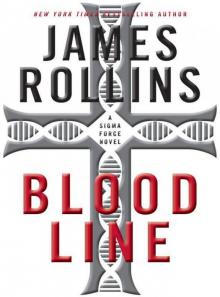 Bloodline: A Sigma Force Novel
Bloodline: A Sigma Force Novel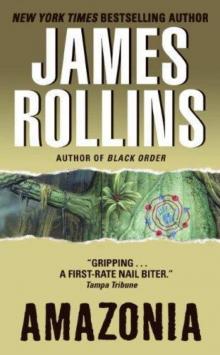 Amazonia: a novel
Amazonia: a novel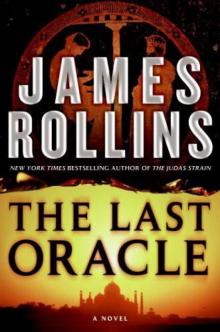 The Last Oracle: A Sigma Force Novel
The Last Oracle: A Sigma Force Novel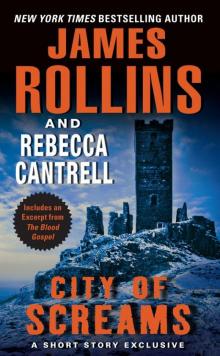 City of Screams (the order of the sanguines)
City of Screams (the order of the sanguines)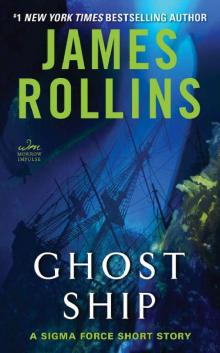 Ghost Ship: A Sigma Force Short Story
Ghost Ship: A Sigma Force Short Story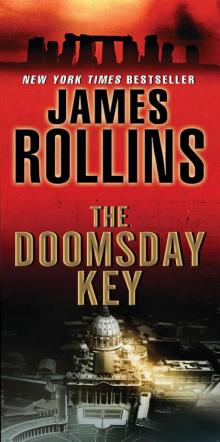 The Doomsday Key: A Sigma Force Novel
The Doomsday Key: A Sigma Force Novel